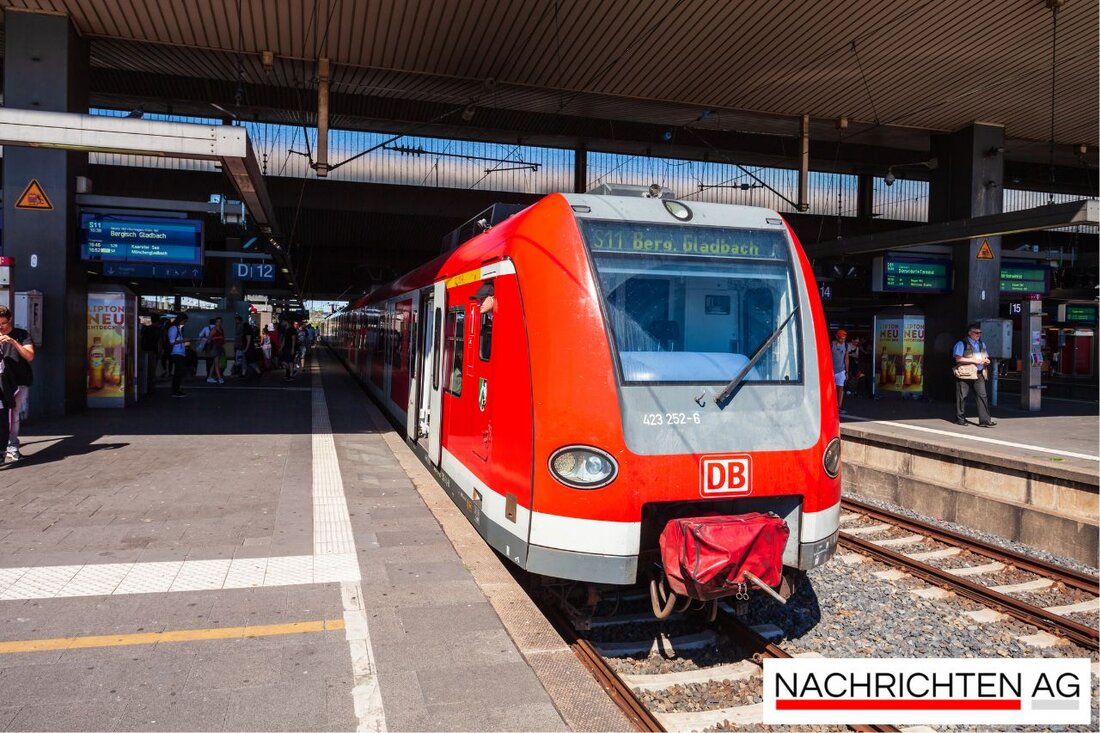New DB timetable 2026: expensive failures and lightning connections!
Göppingen will lose long-distance traffic from 2026. Deutsche Bahn publishes drastic timetable changes due to low demand.

New DB timetable 2026: expensive failures and lightning connections!
Deutsche Bahn recently presented its new timetable for 2026, which will come into force from December 14, 2025. This brings some significant changes that bring both positive developments and unfortunate losses for travelers.
In the new timetable, a total of 21 cities will be served by ICEs every half hour, including important connections such as Hamburg-Kassel, Berlin-Erfurt and Frankfurt-Mannheim. At the same time, the railway will expand its route network beyond German borders and serve nine European countries, including Warsaw, Prague, Copenhagen, Brussels and Paris. The planned new ICE journeys will save considerable time: the journey from Berlin to Stuttgart will now only take around 4 hours and 45 minutes - over an hour faster than before.
On the other hand, there are also downsides to this timetable. Some cities, such as Lübeck, Lippstadt, Göppingen and Hamburg-Bergedorf, will no longer have long-distance transport in the future. The decision in favor of Lübeck in particular had already made waves at the end of September 2025. Lübeck's mayor Jan Lindenau said loudly Mercury vehemently protested against this decision and called for an expansion of capacity after only one in ten places in his city were occupied.
Operational changes and renovations
In addition to the route adjustment, the Leipzig-Nuremberg connection will be reduced from five to two trips in each direction, and the Main-Weser Railway will in future run every four hours to and from Bremen. But it's not just the timetable itself that changes; Construction work and general renovations are also on the agenda. For example, extensive work will be carried out on the Wupper route from February to July 2026 and between Nuremberg and Passau from February to December.
The Hamburg-Berlin route will be affected by diversions until the end of April 2026, so travelers will have to expect a delayed hourly service. Deutsche Bahn initiated all of these changes as part of its “SB² – Building in Pace” program, which was launched in 2023. The aim of this program is to keep rail operations stable and improve despite the high need for construction. Standardized closure times should be used to standardize the planning and execution of maintenance work.
Customer-oriented solutions
To support travelers, Deutsche Bahn continues to offer its BahnCard 25, which grants a 25% discount on flexible, saver and super saver fares within Germany. This is particularly attractive in conjunction with the new ICE trips and especially for those who travel regularly. The City Ticket surcharge for saver and super saver prices is not discounted, but many transport associations and private railway companies can also offer BahnCard 25 discounts, so travelers can hope for some advantages here.
The railway is committed to further improving the punctuality and reliability of its operations. Loud Train The introduction of a clocked production standard for maintenance and investment measures is a step in the right direction. More than 80% of the maintenance work is to be carried out on schedule in 2025, which should ensure more planning security and stability in rail operations.
Overall, Deutsche Bahn's new timetable shows a mixture of progress and challenge. While the improved service and faster connections are pleasing, there are also painful changes that should not go unnoticed. It remains to be seen how the railway will develop in this phase of change.

 Suche
Suche
 Mein Konto
Mein Konto